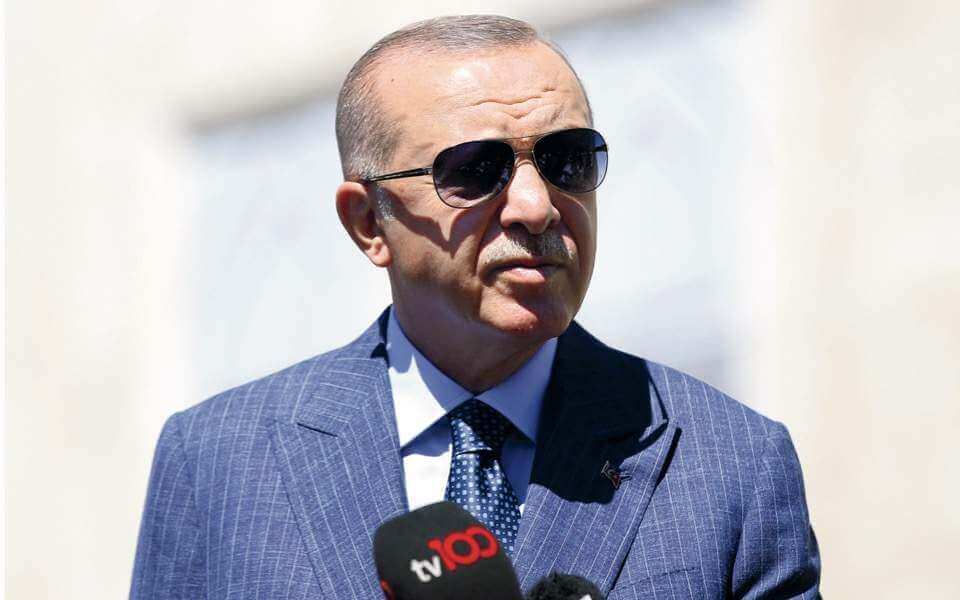
Erdogan’s Turkey is in a state of overstretch, both at home – a trend manifested in the spike in borrowing costs and the decline of the Turkish lira – and abroad.
Abroad, the overstretch is reflected in Ankara’s “Blue Homeland” doctrine and the attempt to control the Eastern Mediterranean at the expense of Greece’s sovereign rights. But it is also seen in a broader objective: the aspiration to control a key global commerce route that connects the Indian Ocean with the Mediterranean Sea; that is Asia with Europe through the Red Sea, the Suez Canal and North Africa. Turkey’s presence in Libya and its large military base in Somalia serve precisely this ambition. Turkey does not just want to control the southern gateways to Europe, but also influence political developments inside Europe; it does that both through the presence of Turkish migrants in countries like Germany, and the exploitation of refugees in threatening to cause a new migrant crisis.
Meanwhile, Ankara’s recurring interventions in Arab countries are aimed at establishing a Turkish hegemony in the Middle East. After Iraq came Syria, now Libya and tomorrow it could be Lebanon. At the same time, on the ideological front, it is promoting – thanks to generous funding from Qatar – the political alternative of illiberal Islamic populism (free elections are a pretext), seeking to put Mideast monarchies and military dictatorships in a tight spot.
All these are signs of a never-before-seen irredentism. However, Turkey’s strength cannot possibly serve these ambitions. The size of the Turkish economy is smaller than that of the Netherlands. The lira has lost 20 percent of its value this year. Erdogan’s counter-reform after 2013 guarantees that Turkey will remain a corrupt “para-state” dominated by the Turkish strongman’s political cronies. Many of the country’s brains have migrated to the West to escape oppression from Islamists.
Most importantly, Erdogan’s policy has led to the formation of a broad anti-Turkey alliance (in the Arab world, Israel, France and a large section of American politics) which Greece has a strong interest in deepening and expanding. Dealing with the threat of Turkey requires determination and restraint, a reasonable not sentimental response, strategy not impulse. It requires alliances and a new international narrative about the problem that is Turkey. Erdogan’s Turkey is an anti-European, anti-Western force. To put it in a way that would be understood in Washington, Turkey is at best behaving like Pakistan and, at worst, like Iran. In a way, Erdogan’s antics are helping Greece’s efforts.
About 70 years ago, the late US diplomat George F. Kennan set the foundations for the American policy of containing Soviet expansion. The idea was to deal with the Soviet Union in a determined, cool-headed, smart and targeted manner, without the excesses of the anti-communist missionaries of US policy-making. Washington did not always stick to the strategy but this was eventually vindicated.
Turkey is a long-term problem. Dealing with it – let alone finding a solution to it – will take patience, persistence and inventiveness on our part. As Athens University professor emeritus Theodoros Kouloumbis, one of the country’s leading IR experts, has said, you need Achilles, but you also need Odysseus. After all, it was thanks to the cunning Odysseus that the Greeks were able to conquer the city of Troy.
The article can be found here